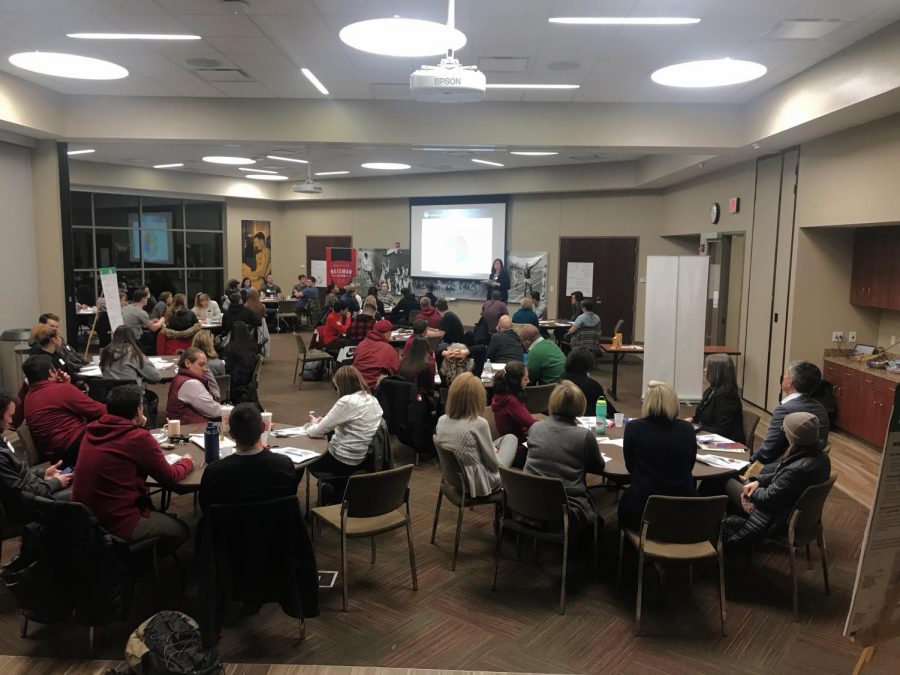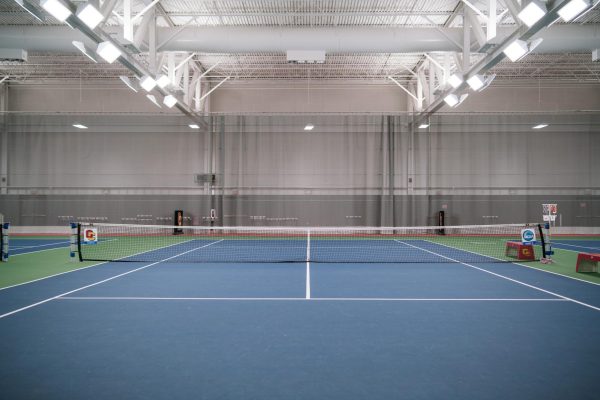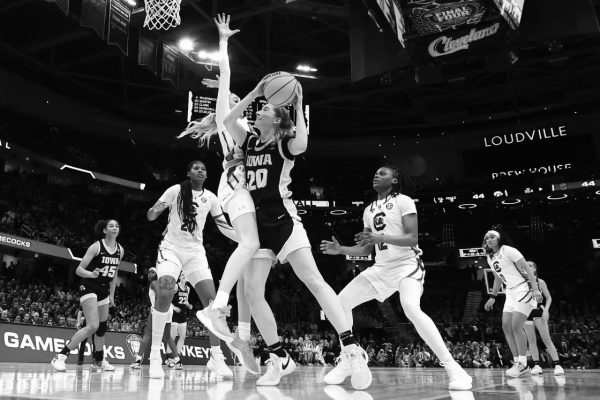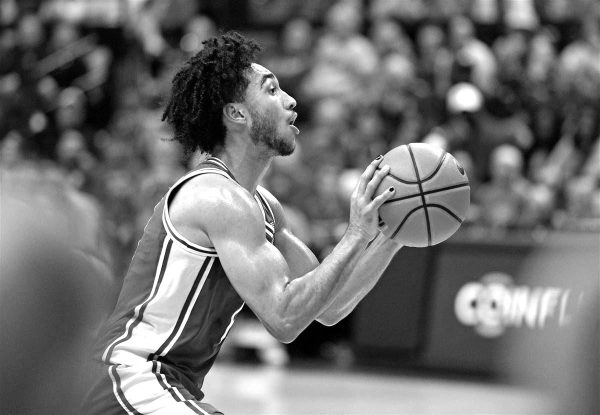Heisman Club Symposium Offers Leadership Workshops
Photo courtesy of OC Athletics
Student-athletes and coaches gather for the first symposium session on Friday evening.
Last weekend, Oberlin student-athletes and coaches were invited to the first Leadership Symposium sponsored by the Oberlin Heisman Club, titled “Leveraging the Leader in You.” On Friday, Saturday, and Sunday, members of the athletic community gathered in the Knowlton Athletics Complex to listen to speakers and participate in workshops related to networking and how to use their leadership skills gleaned from athletics post-graduation.
The Heisman Club is an organization comprised of Oberlin College varsity letterers and others with an interest in Oberlin’s athletic program. A board of elected directors manages the organization and provides opportunities and events to Oberlin student-athletes. The Heisman Club’s primary goal is “to understand styles of leadership … understand personal strengths as leaders, learn ways to harness personal strengths, understand effective communication, unearth one’s personal story, and understand the application of leadership and unique strengths in the world after Oberlin,” according to GoYeo.com.
In light of the Heisman club’s mission, 49 team captains and 15 coaches came together last Friday to take part in a talk led by NCAA facilitators explaining the DiSC behavioral assessment. The assessment curates personality tests in order to decipher how different personality types interact with one another. The theme of Friday’s portion of the symposium was primarily job networking. Attendees heard Colleen O’Neill, OC ’79, present on the networking opportunities available to student-athletes. Attendees were also taught how to use Wisr — an online job networking source recently promoted by Oberlin.
After the comparatively relaxed two-hour symposium on Friday, attendees dove into a six-hour workshop Saturday. According to Oberlin Women’s Lacrosse Head Coach Kim Russell, Saturday’s workshop — which centered around “self-awareness and embodiment,” as described by the event description — was more engaging, both physically and emotionally.
“I think that anything that allows athletes to move makes them more comfortable, but I think the way we had to move took most athletes out of their comfort zone — which I also think is a good thing. To sit with [discomfort] and move with it … I think that’s [effective and] great.”
Saturday also had a career-oriented edge, with a strong focus on how student-athletes could use their leadership skills outside of athletics, and on professional opportunities in particular. While the descriptions of the workshop activities of the day sound vague — “to spark understanding of the link between mind, body and spirit … to achieve their personal academic and professional [goals]” — the activities themselves were met with a relatively positive reception from coaches and athletes. Emma Downing, College senior and softball captain, spoke positively of the experience, highlighting that she “walked away with a deeper understanding of who [she is] and how [she] communicate[s] best.”
On Sunday, the congregation of Oberlin coaches attended a session without their student-athletes’ participation. This session focused on how to implement the lessons and strategies taught throughout the previous two days into practices and other team gatherings. Coach Russell explained that she loves any opportunity to meet with other coaches, especially when it comes to having conversations about how to help student-athletes beyond their respective sports.
“I love these get-togethers [with the coaches],” said Russell. “I always learn something new from someone, or they ask a question that maybe I didn’t think of. That collaboration is always amazing for me.”
While the symposium was generally well-received, some attendees expressed qualms with the event. Many student-athletes were disappointed about missing the Oberlin baseball team’s season-opening double-header, played at Oberlin’s very own Dill Field. Generally, the significant amount of time and attention required was the most notable grievance.
“I think it would be beneficial in the future to condense the symposium from six hours long to two or three,” said Downing. “That way, everyone would stay engaged throughout the entire event and really get the most out of it.”
Coach Russell expressed a similar critique, but also highlighted that this was only the first Heisman Club leadership symposium, and that future symposiums will likely be structured more efficiently and effectively.
“Absolutely [too long],” said Russell. “The facilitators were amazing. Their energy was very different than what I would say athletes are used to. To me, when you read the energy in the room and recognize what is going to work for people to get them engaged and get them going [would be] helpful. I missed the first two hours because I had practice … and I still think it was [too long]. It may not have been as long if it had been done differently.”
Regardless, the event aligned with the Heisman Club’s mission statement, which stresses the need to provide opportunities to Oberlin’s student-athletes to pursue their career and academic endeavors.
Downing emphasized the value in the opportunity.
“I appreciated that the Heisman Club hosted a unique event like this,” she said. “[It] allowed us to interact with coaches and captains from oth- er sports, as well as the Heisman Club members and administrators.”






